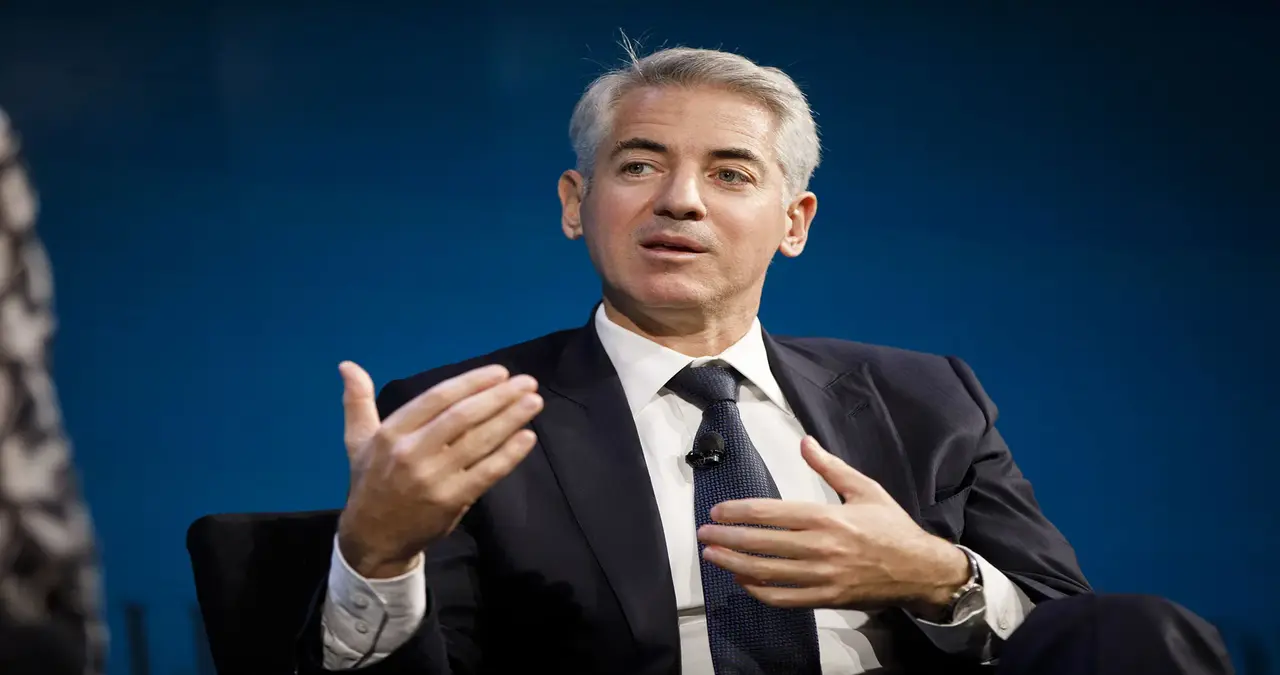Bill Ackman Twitter: The Billionaire Investor’s Bold Presence in Social Media1

Bill Ackman Twitter, one of the most prominent hedge fund managers in the world, has made a name for himself not only through his investments but also through his presence in the world of social media, particularly Twitter. Known for his high-profile investment strategies, bold moves in the stock market, and controversial statements, Ackman has used Twitter as a platform to engage with both the public and his investors. His Twitter feed offers a unique glimpse into his thoughts on finance, the economy, and the world at large.
But why does a billionaire investor, who could easily remain in the shadows of Wall Street, actively engage with Twitter followers and the broader public? This article will explore Bill Ackman’s use of Twitter, how he leverages the platform, and the impact his presence on social media has had on his career and the business world.
Bill Ackman’s Twitter Journey: From Investor to Social Media Influencer
Entering the Twitter World
Bill Ackman, the founder of Pershing Square Capital Management, joined Twitter in 2011, at a time when social media was becoming an increasingly powerful tool for public figures in various sectors, including finance. While many of his peers in the hedge fund world remained largely out of the public eye, Ackman embraced the platform, recognizing its potential to communicate directly with the public and shape his narrative.
In the early days of his Twitter activity, Ackman used the platform in much the same way many others did: to share personal updates, comment on news, and engage in light-hearted conversations. However, it wasn’t long before he began to use his Twitter feed to deliver more substantive commentary, often related to his business ventures and investment strategies.
As Ackman’s Twitter following grew, it became clear that he wasn’t just using the platform to stay connected with friends or followers, but rather as a tool to make his voice heard in the world of finance and beyond. His tweets, often controversial and provocative, began to garner significant attention, both from fans and critics alike.
Defining His Social Media Brand
Ackman’s Twitter presence has become an extension of his public persona: confident, opinionated, and at times, controversial. Where many finance professionals may choose to remain tight-lipped or behind closed doors, Ackman has never shied away from sharing his views on politics, economics, and the stock market.
What sets Ackman apart from many of his peers is his willingness to discuss sensitive topics openly on Twitter, often weighing in on issues like corporate governance, market trends, and even his own business decisions. This willingness to share so openly with the public has led many to view him not only as a hedge fund manager but also as a thought leader in the world of finance.
As he built a reputation on Twitter, his followers grew in numbers and diversity, including fellow investors, finance professionals, and everyday users interested in the insights of a billionaire investor. His commentary on various events, such as the COVID-19 pandemic, the stock market’s performance, and corporate activism, made his feed a must-follow for anyone interested in the intersection of finance and social media.
The Power of Transparency: Bill Ackman’s Approach to Publicly Sharing His Portfolio and Predictions
A Transparent Investor
One of the most striking aspects of Bill Ackman’s use of Twitter is his level of transparency when it comes to his investments. Many investors, especially those managing multi-billion-dollar funds, are notoriously secretive about their portfolios. However, Ackman has consistently used Twitter to provide updates on the stocks and businesses he’s invested in, as well as the rationale behind his decisions.
This transparency has set him apart from many of his industry peers, creating an environment of openness that is rare in the world of high finance. Ackman’s tweets about his holdings, whether they are related to his positions in companies like Restaurant Brands International or his famous bet against Herbalife, have garnered significant attention in both the financial press and social media.
By making his investment strategies public, Ackman has turned Twitter into a platform not just for self-promotion, but for investor education. His followers, ranging from retail investors to seasoned professionals, are given a unique look into the thought process of one of the most well-known hedge fund managers of his generation. For some, Ackman’s transparency is a source of inspiration; for others, it provides invaluable insights into the mechanics of successful investing.
Predicting Market Movements
In addition to sharing updates on his investments, Ackman has also used Twitter to predict and analyze broader market trends. His insights into the economy, particularly during times of financial uncertainty, have gained widespread attention. For instance, during the early days of the COVID-19 pandemic, Ackman used Twitter to warn of the impending economic fallout and made headlines with his predictions about market volatility.
Ackman’s willingness to make bold statements on Twitter—often before they are corroborated by the broader market—has further solidified his position as an influencer in the world of finance. His tweets usually provide early warnings about potential market shifts, giving his followers a chance to adjust their strategies or stay informed about key Bill Ackman Twitter. For those looking to stay ahead of the curve, Ackman’s Twitter feed has become a vital resource.

Controversial Tweets: The Impact of Bill Ackman’s Most Provocative Moments
The Herbalife Battle
One of the most high-profile moments in Bill Ackman’s Twitter history came during his long-running battle with Herbalife, a global nutrition company. Ackman famously shorted the stock of Herbalife, claiming that the company was running a pyramid scheme. His crusade against the company included public presentations, interviews, and yes, Twitter posts, all of which amplified the controversy.
Ackman’s outspoken criticism of Herbalife—coupled with his very public stance on shorting the stock—drew both supporters and detractors. His tweets regarding Herbalife’s business practices generated intense media attention, and his claims sparked a heated debate about corporate accountability and market manipulation.
In the end, Ackman’s long bet against Herbalife proved to be unsuccessful. Despite this, his transparency in discussing the matter openly on Twitter demonstrated his commitment to sharing both his successes and his failures with the public. For many, this honesty only solidified Ackman’s reputation as a fearless and authentic investor willing to take bold stands, even if they didn’t always pay off.
The COVID-19 Crisis and His $27 Million Bet
Another moment that put Ackman at the center of a Twitter storm was his involvement in the early days of the COVID-19 pandemic. As global markets plummeted in the face of the pandemic, Ackman made a $27 million bet that the markets would continue to suffer. He also took to Twitter to warn of the dire consequences of the virus, calling for the U.S. government to take drastic action to prevent economic collapse.
While Ackman’s prediction about the market’s decline proved accurate in the short term, his aggressive positioning—and the public nature of his statements—led some to accuse him of profiting off the crisis. His tweets, which were seen as both a warning and a business maneuver, sparked intense debate about the ethics of profiting during a global emergency. Yet, despite the controversy, Ackman’s followers on Twitter were quick to praise his foresight and market acumen, further cementing his status as a major figure in both finance and social media.
Bill Ackman and the Influence of Social Media on Hedge Fund Management
Changing the Landscape of Investment Communication
Bill Ackman’s use of Twitter has had a significant impact on the way hedge fund managers communicate with the public. Traditionally, hedge fund managers kept their strategies and positions hidden from the public eye, sharing them only with institutional investors. But with Ackman’s embrace of social media, he has helped reshape the landscape of hedge fund communication, making it more transparent and interactive.
While some critics argue that such openness could be damaging to a fund’s competitive edge, Ackman’s use of Twitter has demonstrated that transparency can be a powerful tool for building trust and engaging with a wider audience. His willingness to share not only his successes but also his setbacks has created a more relatable and approachable image for investors.
For hedge fund managers who want to build a personal brand or connect with a wider audience, Ackman’s approach to Twitter offers a blueprint for success. Whether sharing thoughts on the economy, discussing investment opportunities, or engaging with followers directly, Ackman has shown that social media can be a valuable tool for managing public perception and fostering communication.
The Risk of Oversharing: How Much is Too Much?
While Bill Ackman’s openness has earned him praise from some quarters, others have raised concerns about the potential risks of oversharing on social media. As a hedge fund manager, Ackman’s public comments on Twitter can have an impact on the market, influencing the behavior of retail investors and institutional players alike. The question remains: does Twitter give too much influence to the individual?
There are risks involved with public figures using Twitter as a business tool. For one, any tweet Ackman posts could move markets, potentially leading to accusations of market manipulation. His personal opinions on a company or a stock could influence investors to act on that information, whether intentionally or unintentionally. The line between transparency and manipulation can sometimes be blurry, and Ackman’s critics have pointed out that the risk of overexposure in this age of social media is a real concern.
Despite these concerns, Ackman has continued to use Twitter to build his brand, engage with followers, and share his insights. His ability to navigate this fine line between transparency and oversharing will continue to be a point of discussion in the years to come.



